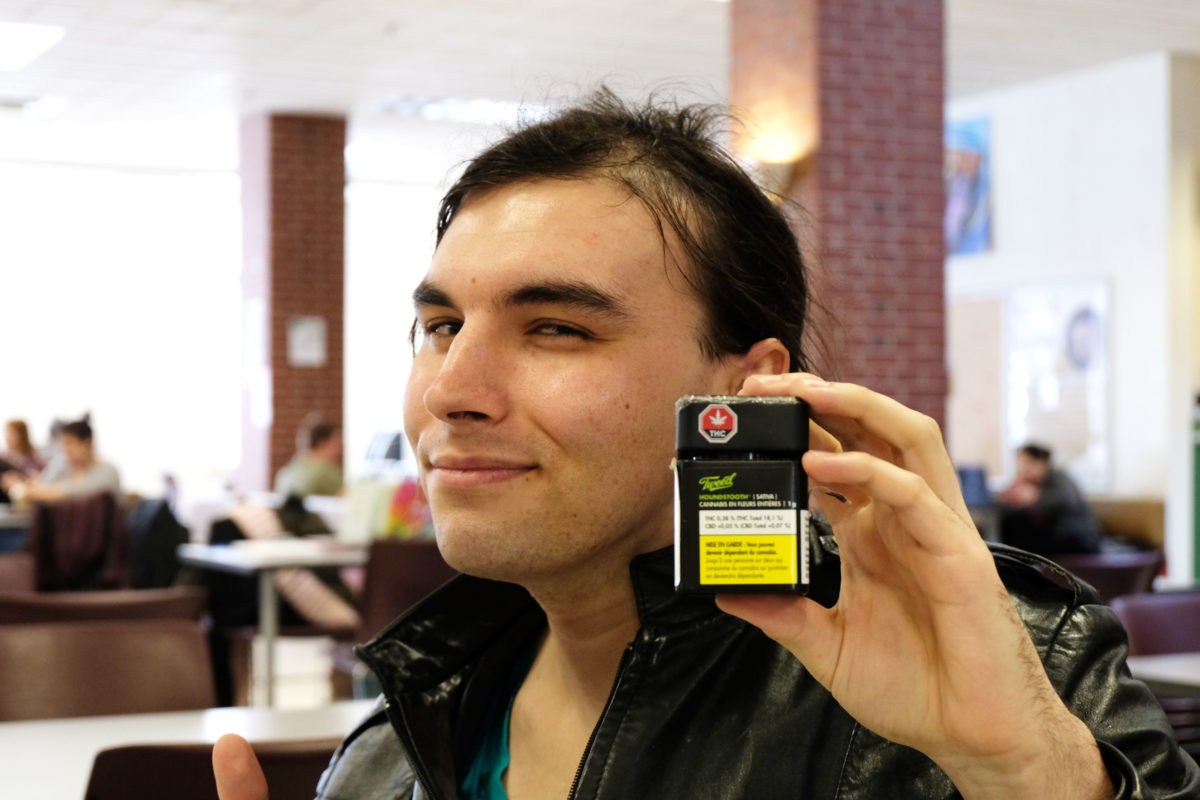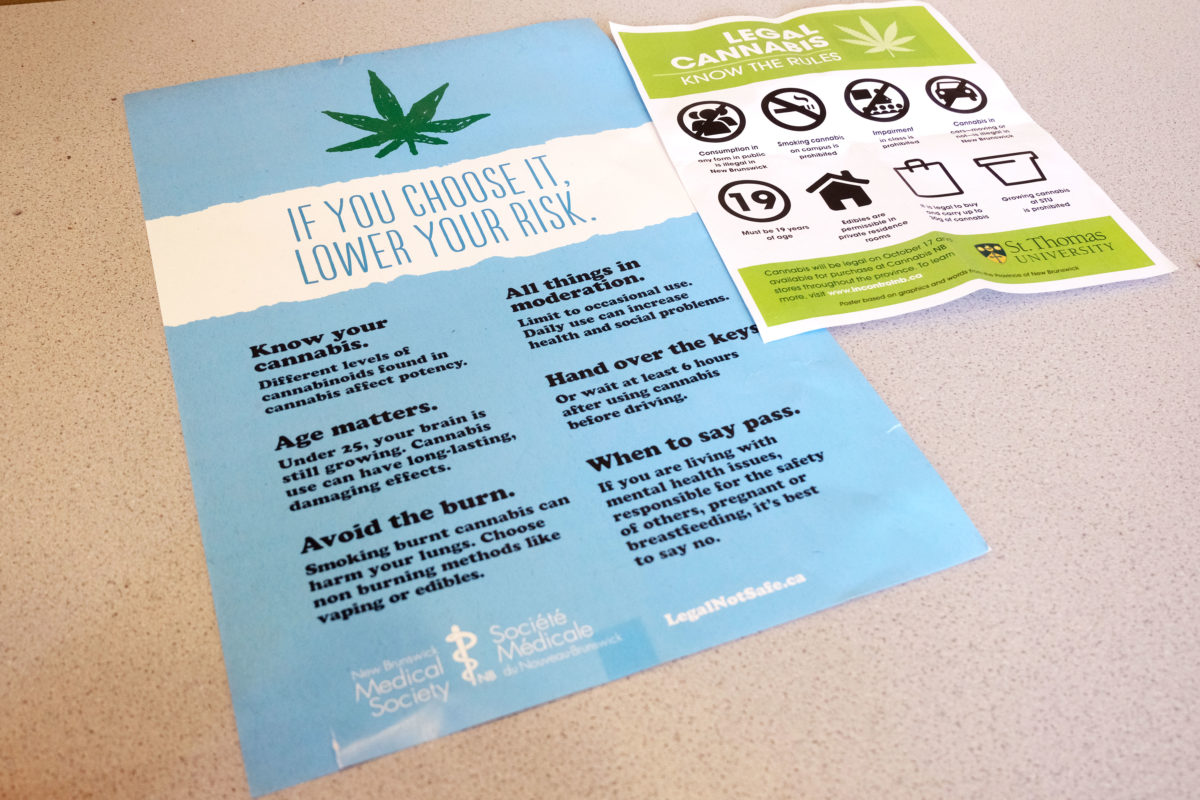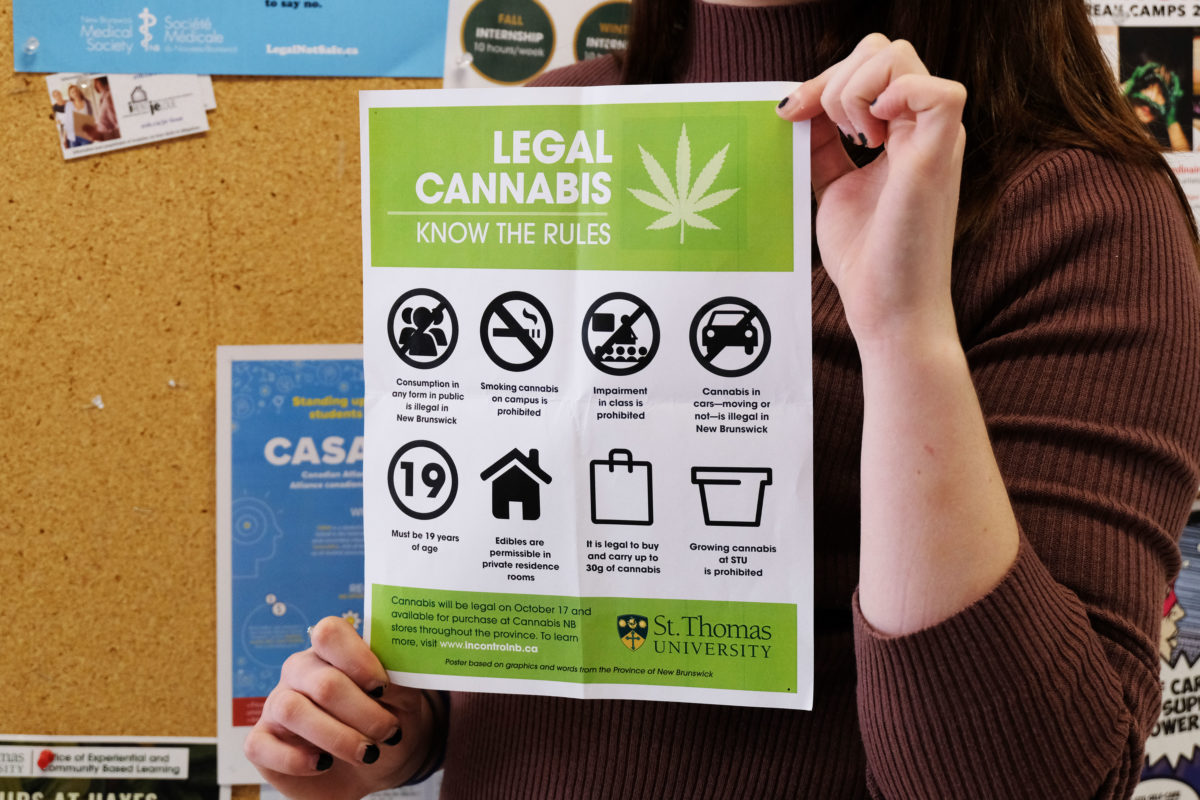Naomi Gullison, a third-year St. Thomas University student, thinks the university’s Policy on Cannabis isn’t preventing students from smoking on campus.
The only permitted way to consume cannabis on campus is through edibles, but students can’t make edibles on campus. She said students violate this part of the policy, however.
“I think a lot of people who are smokers are still just sort of going about their business. And yeah, that means violating the campus’ policy on it as well,” said Gullison.
“This is very much just sort of pushing the responsibility on the students to break the law in a lot of cases.”
The university’s Policy on Cannabis was introduced on Oct. 17, 2018, following the country-wide legalization of cannabis.
Gullison believes this policy is catering too much to restrictions and not to students who spend their time and money on campus.
She would like to see the university make more of an effort to allow students who live in residence to enjoy cannabis. She believes it’s worrisome for students who wish to use cannabis medically, but don’t have a prescription because some doctors don’t support cannabis use.

“I think it’s going to take some student pressure to take this a little further and maybe ease off some of these restrictions,” said Gullison.
Bachelor of Education student Ayla Poitras believes the policy doesn’t make consuming cannabis as simple as consuming alcohol for students living in residence.
“I think it’s a little obviously unfair to the people who live in residence,” said Poitras, who lives in an apartment off-campus. “Like my lease doesn’t even have a no smoking clause.”
Four months post-legalization
Four months after the legalization of cannabis, Scott Duguay, associate vice-president enrolment, said the transition is going smoothly and he’s happy with student use of cannabis.
“We haven’t had a negative experience around it and I credit students a lot for that. I think they’ve been really responsible, they’ve been informed, but they’ve also enjoyed cannabis within the rules and regulations within the law,” said Duguay.
Duguay said the university’s top priority is harm reduction and the residence advisors have received additional training about the effects of cannabis, how to effectively implement the policy and keep students safe.
The university has been circulating posters that outline the policy. Duguay said the strict provincial legislation, which doesn’t allow smoking in public, was helpful in creating the university’s policy.
“We just basically went, ‘OK, well you know you have to be 19. You can’t smoke in public areas.’ That eliminates some of the problems we may have had around campus with people smoking up, you know, just here and there, because of the smells and stuff,” said Duguay.


‘Policy posters not enough’
Poitras also believes the posters and additional education for residence advisors isn’t enough. Though there are New Brunswick Medical Society posters on campus that describe the risks of cannabis, STU hasn’t run its own educational campaign. Poitras said there should be more effort to do research and directly educate the students, especially those who live outside of residence.
“If you wanted to be educational, you would have an actual poster with safety aspects or like maybe pamphlets, or maybe you would bring someone in,” said Poitras.
“You need to support [the poster] with more than just pictures of little houses and do-not-do’s.”

